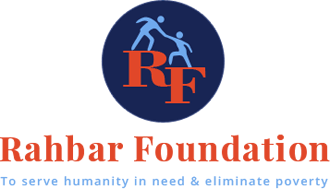
Click here to see if your employer will match your donation.
Click to see if your company provides grants for volunteering.
Qurbani / Udhiya
The Udhiyah/ Qurbani mark the end of Hajj (pilgrimage), and is a time to reflect upon the significance of sacrifice with the Islamic tradition. Muslims all over the world by Qurbani commemorate the Prophet Ibrahim willingness to sacrifice his son for Allah. Muslims observe Udhiyah/Qurbani by sharing meat with the less fortunate people. Please share your Qurbani with the poor and give a life-changing Eid Gift that could go a long way to help as this will have a direct impact not just on one life, but on entire villages and communities.
Qurbani is Wajib upon all mature Muslims who, on the day of `Eid al-Azha, possess Nisab. Whoever qualifies for this is required to purchase a sheep or goat of more than one year in age, and perform qurbani in the name of Allah after the `Eid prayer preferably on the same day. The sacrifice can also be done on the two days after Eid.
When you donate your Udhiyah/Qurbani to communities in need, you are sharing something truly special with them. Rahbar Foundation donors annually provide meat to impoverished communities during Udhiyah/Qurbani program drive. Thecosts of one goat or sheep for one share also one share in cattle are given below.
The cost of one GOAT is $ 125
The cost of one Sheep is $125
The cost of one share in cattle is $50 and for 7 shares it would be $350
To donate your Qurbani today please click on DONATE NOW link.
FAQs
What are the Benefits of Qurbani?
Giving meat to the poor and destitute is required. When you perform Qurbani and distribute meat that spreads happiness also make them enjoy the event because the Eid-ul-Adha is a time of celebration and festivities for all Muslims around the world. It is also a reminder of the great sacrifice the Prophet Abraham (Peace be upon him) was about to do for the Sake of Allah (Most High).
Who should give Qurbani?
Persons who possess Nisab (minimum amount of wealth requiring them to pay Zakat) should give Qurbani. It is not obligatory (fard) but is highly recommended (wajib) according to the Hanafi school of thought. However, Qurbani is a Sunnah act according to the Shafi, Hanbali, Maliki, and Jafari schools of thought. Therefore Qurbani is held with esteem reverence across the Muslim Ummah.
What are the Requirements for Qurbani?
The animals to be slaughtered must be a goat, sheep, cattle (cow, ox, water buffalo), or camel. Goats and sheep have to be at least one year old. For cows the age must be at least two years old. Camels must be at least five years old. Goats and sheep count as one share per animal. Cattle and camels count as seven shares per animal.
They must be free from any form of handicap such as blind, sick, limp and undernourished. It also must be free of any defects such as a cut-off ear, tail, broken teeth or broken horn. However, the goat/sheep can be used if only a few teeth are broken and most teeth are still intact. In addition, if its horn is broken midway and not from the root, it is permissible to use such an animal. Injuries sustained during the qurbani do not invalidate the qurbani.
The animals must be slaughtered in the appropriate humane ways. It has to be done by a Muslim and the slaughtering of the animal must be shariah compliant.
When Should Qurbani be Performed?
The time for performing Qurbani starts from sunrise after the performance of the Eid-ul-Adha prayers which falls on the 10th of Dhul-Hijjah until the sunsets on the 12th of Dhul-Hijjah. The best time is to perform the act of Qurbani immediately after the completion of the Eid-ul-Adha prayers or within three days.
It was reported that the Prophet Muhammad (PBUH) said: The first thing that we do on the day of Eid is to perform the prayers. Then we go home and carry out our Qurbani. Thus whoever does those acts has conformed to our sunnah and for those who slaughtered before Eid prayer, then the meat is for the family members and not as an act of Qurbani. (Sahih Al-Bukhari)
How should the Distribution of the Qurbani Meat be done?
It is preferable that the meat from Qurbani be divided in three equal parts: one for the home, one for relatives and friends, and one for the poor and needy. The meat from Qurbani can be distributed to the poor, rich, Muslim or non-Muslim.











